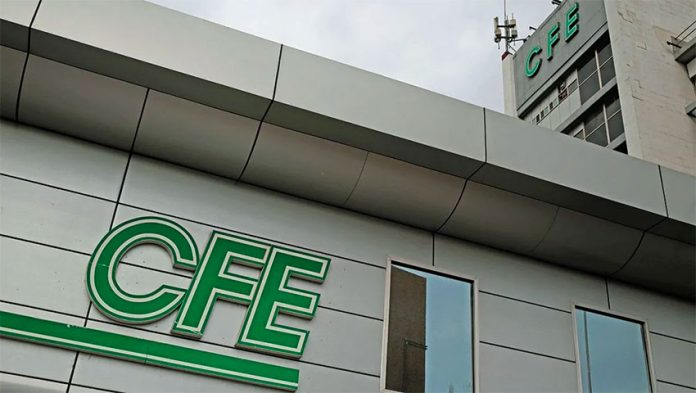The Federal Economic Competition Commission (Cofece) has recommended against the approval of the federal government’s proposed electricity reform, which would guarantee 54% of the market to the state-owned Federal Electricity Commission (CFE).
Cofece said in a statement Monday that it had submitted an opinion to Congress advising it not to pass the constitutional bill, which requires the support of two-thirds of lawmakers to become law.
The opinion “reiterates the importance of maintaining and strengthening an electricity model based on competition, accompanied by the regulation elements necessary to safeguard the public interest.”
The proposed reform, sent to Congress last October, would also get rid of the independent National Hydrocarbons Commission (CNH) and the Energy Regulatory Commission (CRE).
Cofece warned that the bill “unequivocally” renounces the current electricity generation and supply model, seeking to replace it with an “industrial model” that is “vertically integrated and operated by an unregulated state monopoly.”
Such models have been abandoned in many countries due to their “inefficiency, inability to meet demand, high cost and negative impact on public finances,” it said.
The competition watchdog also warned that the model proposed would establish a monopoly in the entire electricity sector value chain; create a monopsony in the purchase of electricity in which the CFE is the sole buyer; improperly transfer regulatory and public policy responsibilities to the CFE; and eliminate mechanisms designed to achieve “fundamental objectives,” such as supervision of the reliability of the electricity system, improvement of service and promotion of investment in more efficient and cleaner generation technologies.
If passed, the reform would severely limit the participation of private, renewable companies that were able to enter Mexico’s electricity market due to the previous government’s energy reform.
Cofece added that the bill doesn’t outline mechanisms to ensure that electricity generated and dispatched in Mexico both by the CFE and private companies “is the least costly.”
“A change such as that proposed would delay the exit from the market of older, polluting and inefficient power plants,” the commission said.
“It would also discourage the installation of new projects that could operate with technologies that are more efficient and friendlier to the environment,” it said.
“… The proposed paradigm shift would cause an increase in costs along the value chain of the electricity industry, which would cause an increase in rates that would harm the wellbeing of consumers and the competitive position of companies,” Cofece said.
“… In summary, the proposal would compromise the efficient functioning of the sector in general and its ability to meet present and future needs. That would negatively affect both consumers and companies, the country’s competitiveness and … economic growth.”
The competition commission is the latest in a long list of critics of the proposed electricity reform, which is expected to be put to a vote sometime later this year. Among the others are the United States government, the Canadian Chamber of Commerce in Mexico, the European Union’s ambassador to Mexico and the Mexican Solar Energy Association.
Mexico News Daily
